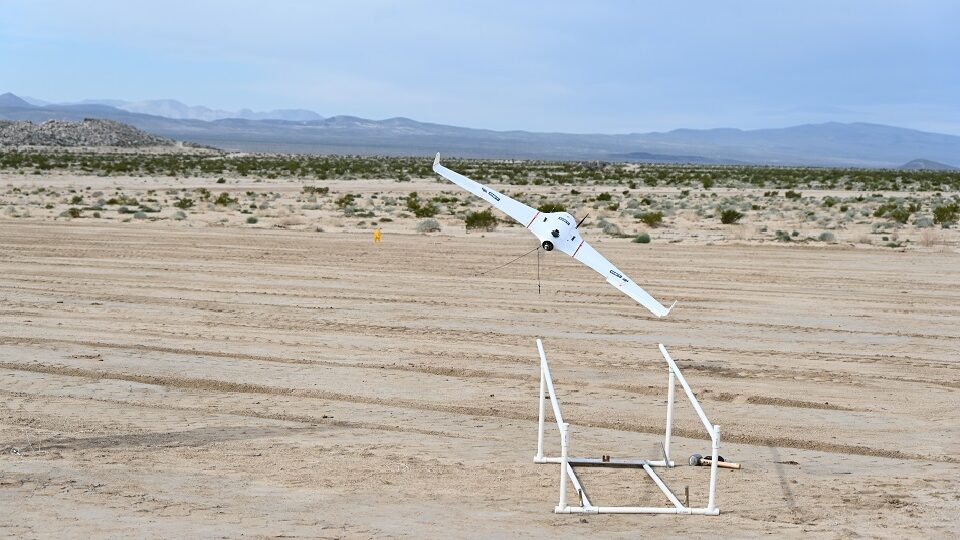
BELFAST — Australia, the UK and the US, the three AUKUS partners, successfully trialled artificial intelligence (AI) enabled uncrewed aerial vehicles (UAV) and other autonomous capabilities with an eye to cutting identification time of enemy targets.
The trial, which falls under the wider AUKUS Resilient and Autonomous Artificial Intelligence Technologies (RAAIT) line of work, was hailed by the UK’s Defence Science and Technology Laboratory (DSTL) today, as “the first use of autonomy and AI sensing systems in a real-time military environment.” DSTL is the UK’s military technology experimentation arm.
Though the announcement came today, DSTL said the trial came as apart of the US-hosted multinational Project Convergence Capstone 4 technology experimentation exercise, which took place in the spring. The trial included “several drones” from each of the three AUKUS countries “operating together in the same airspace to achieve a common outcome, whilst being augmented by an AUKUS AI team, which retrained and deployed AI onto the platforms,” according to DSTL.
The deployment of AI-capable drones makes it possible for human operators to “locate, disable and destroy targets on the ground,” it added.
DSTL said that the “seamless exchange of data and control” across the technologies from the partner nations showed the progress they have jointly made in adopting AI and autonomous systems.
The development of AI and other advanced technologies including hypersonic missiles and quantum computing sits under AUKUS Pillar II, separate to the main focus of the trilateral security pact or Pillar I, based around a new class of conventionally armed, nuclear-powered submarines for Australia.
EXCLUSIVE: Australian defense minister Richard Marles on AUKUS, China and industry concerns
DSTL also noted that “once proven” AI and autonomous capabilities “will be incorporated onto national platforms, providing the military with operational advantage through a quicker response to current and future threats,” though no specific timeframe was put forward.
The latest AI trial builds off similar demonstrations, in particular, AI swarm testing completed out of Wiltshire, southwest England, last year. During that test a collection of AUKUS “AI-enabled assets” successfully operated together as a swarm for the first time to detect and track targets.